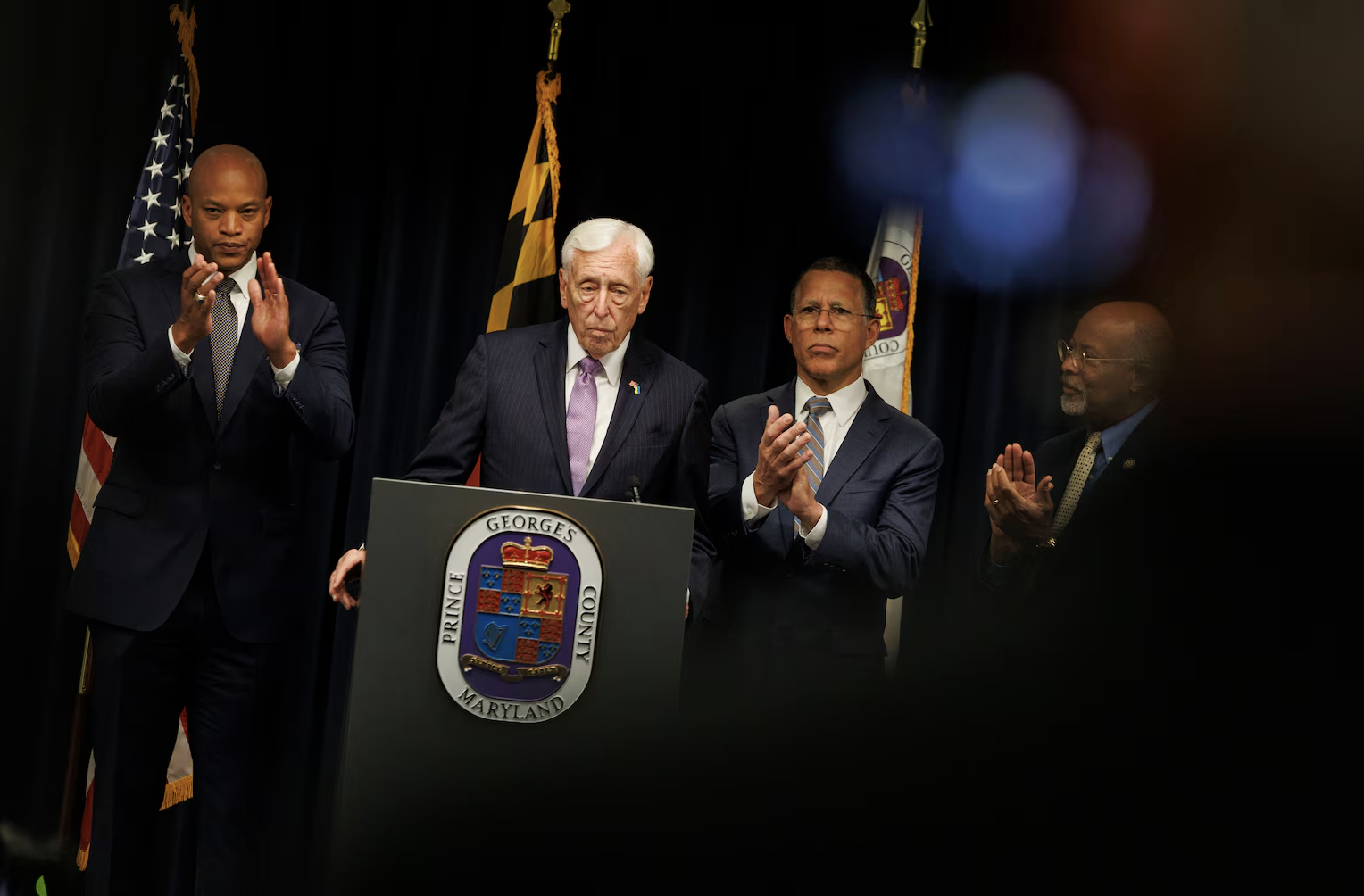Local
Will Manning case harm effort to lift trans military ban?
Convicted soldier: ‘I am Chelsea Manning. I am female’


(Photo by Diane Perlman)
One day after a military judge sentenced then-U.S. Army private Bradley Manning to 35 years in prison for leaking classified documents to Wikileaks, the 25-year-old soldier released a statement through her attorney coming out as transgender.
“As I transition into this next phase of my life, I want everyone to know the real me,” Manning said. “I am Chelsea Manning. I am a female.”
Manning’s dramatic announcement was first disclosed on NBC’s “The Today Show” early Thursday morning by her lead defense attorney, David Coombs, who said Chelsea Manning will request from prison authorities permission to undergo hormone therapy.
If prison officials don’t agree to Manning’s request, “then I’m going to do everything in my power to make sure they are forced to do so,” Coombs said.
Manning’s sentencing and declaration that she is a transgender woman follows a protracted trial that transgender activists fear has set back their quest to persuade the military to lift its ban on transgender service members.
The sentence came one week after Manning’s attorneys argued that Manning’s decision to leak more than 700,000 classified military and diplomatic documents along with video footage of battlefield scenes was due, in part, to the stress Manning was experiencing over her gender identity.
Earlier in the trial, the defense disclosed that Manning – who initially identified as a gay man – had been quietly struggling over whether she was a transgender woman.
Last week, defense attorneys released a photo of Manning dressed as a woman with a blond wig. Her attorney presented as a witness a military therapist who testified that Manning emailed him the photo along with a letter describing her gender identity as a “problem.”
“You put him in that kind of hyper-masculine environment, if you will, with little support and few coping skills, the pressure would have been difficult to say the least,” the Associated Press quoted the therapist, Capt. Michael Worsley, as saying in his testimony last week at the sentencing phase of Manning’s court martial. “It would have been incredible.”
Two prominent transgender activists who have served in the military before transitioning from male to female told the Washington Blade — just before Manning disclosed she’s transgender — that a large number of closeted transgender service members currently are performing their duties flawlessly while experiencing some of the same pressures related to their gender identity that Manning might have experienced.
The future of transgender military service
“Our view is Manning’s gender identity — no matter what it is — does not justify what he did,” Brynn Tannehill, a transgender woman and former Lt. Commander in the Navy, told the Blade prior to Manning’s Thursday announcement. She currently serves as spokesperson for the Trans Chapter of SPART*A, a group representing mostly active duty LGBT service members.
“If Bradley Manning is transgender and if he struggles over this, we can empathize over that,” Tannehill told the Blade in a telephone interview Tuesday night. “But we do not believe it should excuse what he did.”
Tannehill added, “We know many trans military people with highly distinguished careers. So the argument that being transgender made him do this is patently false.”
Tannehill and transgender advocate Autumn Sandeen, who transitioned from male to female after retiring from the Navy, said the negative publicity surrounding Manning’s personal struggle with her gender identity is overshadowing the overwhelming majority of service members grappling with their gender identity who quietly do their jobs well.
The two noted that as many as 120 closeted transgender service members affiliated with the SPART*A group can’t come out as positive role models because they would be subject to discharge under a military regulation that strictly prohibits “transsexualism” and “gender transformation” within the military.
“In my last four years in the Navy I was grappling with gender identity and yet I did my job,” said Sandeen, who lives in San Diego.
Among other things, Sandeen said she had access to classified information while serving on a ship. She says she and other transgender people she knows had similar access to classified information never mishandled or released such information.
“[Manning] will be used as an example of why transgender people shouldn’t serve in the military,” she said.
Sandeen said the transgender people she knows, both civilians and military members, are divided over whether what Manning did was good or bad for the country, just as other Americans are divided over the issue.
Chelsea Manning and Wikileaks
In July Manning was found not guilty of aiding the enemy, the most serious charge filed against her. But the military judge, Army Col. Denise Lind, found her guilty of nearly all of the other charges filed against her, including six counts of violating the U.S. Espionage Act.
Manning’s supporters say the information she leaked to the whistleblower group Wikileaks shined a spotlight on flawed U.S. policies and military practices in the Iraq and Afghanistan wars that would not otherwise have been brought to the attention of the American public.
Government prosecutors argued that Manning’s actions placed U.S. troops in jeopardy by revealing classified information that terrorists and other enemies could use against U.S. military and civil personnel stationed overseas.
“Personally, if Manning comes out as transgender I will be someone who owns him, but owns him as a person who did wrong,” Sandeen told the Blade the day prior to Manning’s announcement that she was transitioning. “We have to take the good with the bad.”
Mara Keisling, executive director of the National Center for Transgender Equality, told the Blade on Thursday following Manning’s announcement that she’s a transgender woman that the Manning case was a “temporary blip” in the ongoing efforts to obtain equal rights for transgender people.
“In the long run, this won’t have an impact on the LGBT rights movement,” Mara said. “With thousands of transgender people coming out, we are moving ahead on the education front concerning transgender equality.”
Keisling criticized a statement released by the Army on Thursday that Manning most likely would not be allowed to obtain hormone treatment to facilitate her gender transition while serving time in an Army prison in Fort Leavenworth, Kan.
“That’s not going to be the final word,” she said. “You can’t deny health care to prisoners. That’s unconstitutional because it amounts to cruel and unusual punishment.”
Keisling was referring to the prevailing views of the medical and mental health professions, including the American Medical Association, that being transgender is a medical condition that requires various means of treatment, including hormone therapy, to facilitate a healthy transition from one gender to another.
Virginia
Gay Va. State Sen. Ebbin resigns for role in Spanberger administration
Veteran lawmaker will step down in February

Alexandria Democrat Adam Ebbin, who has served as an openly gay member of the Virginia Legislature since 2004, announced on Jan. 7 that he is resigning from his seat in the State Senate to take a job in the administration of Gov.-Elect Abigail Spanberger.
Since 2012, Ebbin has been a member of the Virginia Senate for the 39th District representing parts of Alexandria, Arlington, and Fairfax counties. He served in the Virginia House of Delegates representing Alexandria from 2004 to 2012, becoming the state’s first out gay lawmaker.
His announcement says he submitted his resignation from his Senate position effective Feb. 18 to join the Spanberger administration as a senior adviser at the Virginia Cannabis Control Authority.
“I’m grateful to have the benefit of Senator Ebbin’s policy expertise continuing to serve the people of Virginia, and I look forward to working with him to prioritize public safety and public health,” Spanberger said in Ebbin’s announcement statement.
She was referring to the lead role Ebbin has played in the Virginia Legislature’s approval in 2020 of legislation decriminalizing marijuana and the subsequent approval in 2021of a bill legalizing recreational use and possession of marijuana for adults 21 years of age and older. But the Virginia Legislature has yet to pass legislation facilitating the retail sale of marijuana for recreational use and limits sales to purchases at licensed medical marijuana dispensaries.
“I share Governor-elect Spanberger’s goal that adults 21 and over who choose to use cannabis, and those who use it for medical treatment, have access to a well-tested, accurately labeled product, free from contamination,” Ebbin said in his statement. “2026 is the year we will move cannabis sales off the street corner and behind the age-verified counter,” he said.
Maryland
Steny Hoyer, the longest-serving House Democrat, to retire from Congress
Md. congressman served for years in party leadership

By ASSOCIATED PRESS and LISA MASCARO | Rep. Steny Hoyer of Maryland, the longest-serving Democrat in Congress and once a rival to become House speaker, will announce Thursday he is set to retire at the end of his term.
Hoyer, who served for years in party leadership and helped steer Democrats through some of their most significant legislative victories, is set to deliver a House floor speech about his decision, according to a person familiar with the situation and granted anonymity to discuss it.
“Tune in,” Hoyer said on social media. He confirmed his retirement plans in an interview with the Washington Post.
The rest of this article can be found on the Baltimore Banner’s website.
District of Columbia
Kennedy Center renaming triggers backlash
Artists who cancel shows threatened; calls for funding boycott grow

Efforts to rename the Kennedy Center to add President Trump’s name to the D.C. arts institution continue to spark backlash.
A new petition from Qommittee , a national network of drag artists and allies led by survivors of hate crimes, calls on Kennedy Center donors to suspend funding to the center until “artistic independence is restored, and to redirect support to banned or censored artists.”
“While Trump won’t back down, the donors who contribute nearly $100 million annually to the Kennedy Center can afford to take a stand,” the petition reads. “Money talks. When donors fund censorship, they don’t just harm one institution – they tell marginalized communities their stories don’t deserve to be told.”
The petition can be found here.
Meanwhile, a decision by several prominent musicians and jazz performers to cancel their shows at the recently renamed Trump-Kennedy Center in D.C. planned for Christmas Eve and New Year’s Eve has drawn the ire of the Center’s president, Richard Grenell.
Grenell, a gay supporter of President Donald Trump who served as U.S. ambassador to Germany during Trump’s first term as president, was named Kennedy Center president last year by its board of directors that had been appointed by Trump.
Last month the board voted to change the official name of the center from the John F. Kennedy Memorial Center For The Performing Arts to the Donald J. Trump And The John F. Kennedy Memorial Center For The Performing Arts. The revised name has been installed on the outside wall of the center’s building but is not official because any name change would require congressional action.
According to a report by the New York Times, Grenell informed jazz musician Chuck Redd, who cancelled a 2025 Christmas Eve concert that he has hosted at the Kennedy Center for nearly 20 years in response to the name change, that Grenell planned to arrange for the center to file a lawsuit against him for the cancellation.
“Your decision to withdraw at the last moment — explicitly in response to the Center’s recent renaming, which honors President Trump’s extraordinary efforts to save this national treasure — is classic intolerance and very costly to a non-profit arts institution,” the Times quoted Grenell as saying in a letter to Redd.
“This is your official notice that we will seek $1 million in damages from you for this political stunt,” the Times quoted Grenell’s letter as saying.
A spokesperson for the Trump-Kennedy Center did not immediately respond to an inquiry from the Washington Blade asking if the center still planned to file that lawsuit and whether it planned to file suits against some of the other musicians who recently cancelled their performances following the name change.
In a follow-up story published on Dec. 29, the New York Times reported that a prominent jazz ensemble and a New York dance company had canceled performances scheduled to take place on New Year’s Eve at the Kennedy Center.
The Times reported the jazz ensemble called The Cookers did not give a reason for the cancellation in a statement it released, but its drummer, Billy Hart, told the Times the center’s name change “evidently” played a role in the decision to cancel the performance.
Grenell released a statement on Dec. 29 calling these and other performers who cancelled their shows “far left political activists” who he said had been booked by the Kennedy Center’s previous leadership.
“Boycotting the arts to show you support the arts is a form of derangement syndrome,” the Times quoted him as saying in his statement.
-

 National4 days ago
National4 days agoWhat to watch for in 2026: midterms, Supreme Court, and more
-

 District of Columbia5 days ago
District of Columbia5 days agoTwo pioneering gay journalists to speak at Thursday event
-

 a&e features5 days ago
a&e features5 days agoQueer highlights of the 2026 Critics Choice Awards: Aunt Gladys, that ‘Heated Rivalry’ shoutout and more
-

 Colombia4 days ago
Colombia4 days agoBlade travels to Colombia after U.S. forces seize Maduro in Venezuela



















